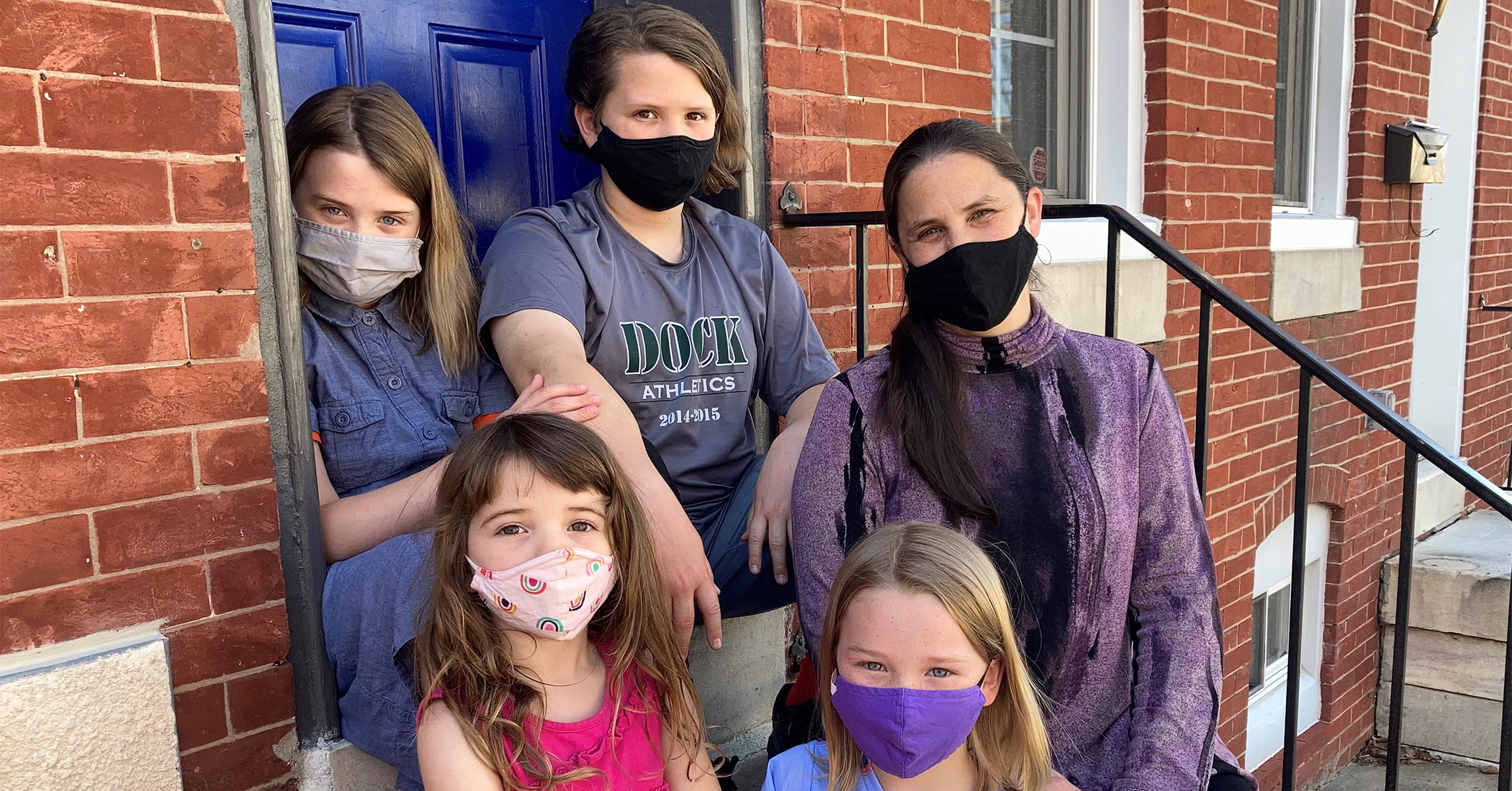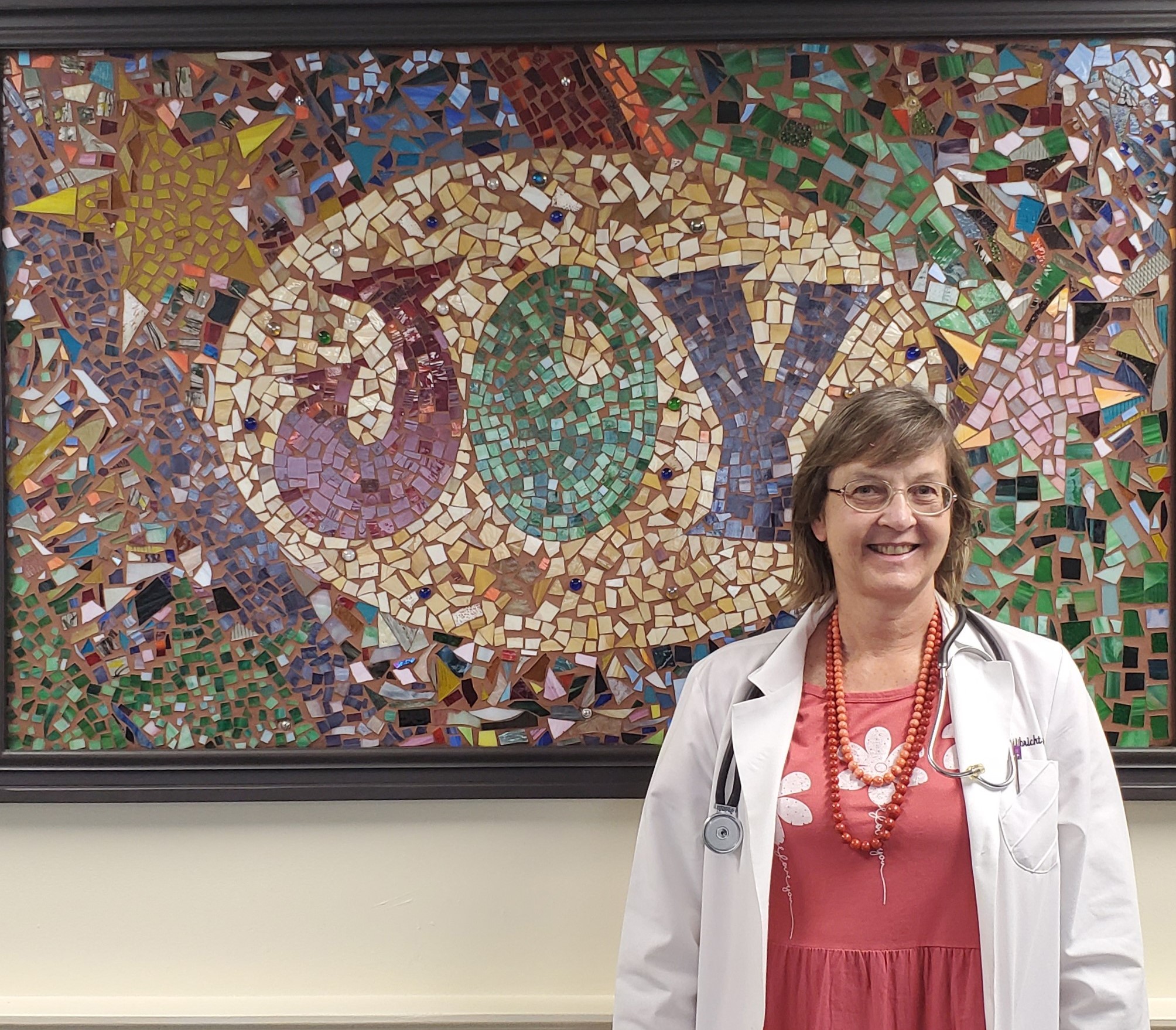When first-year Johns Hopkins medical student Lekha Yesantharao signed up for the Service Scholars program, she didn’t know a lot about Baltimore’s growing refugee population. But over her service year, Yesantharao became an integral part of the Baltimore International Rescue Committee (IRC), an organization that helps settle and support refugees in Baltimore.
“I learned to be cognizant of what people are bringing to the table with their life experiences,” says the Houston, Texas, native. “I learned to be humble and always listen first, rather than just trying to impose my own beliefs and thoughts. That will help when I become a doctor.”
The Service Scholars program is part of SOURCE, the community engagement and service-learning center for The Johns Hopkins University’s schools of public health, nursing and medicine. The program trains Johns Hopkins students to work as project managers at community organizations. The goal is for students to learn how to move a project from start to finish. They must also recruit four students to be volunteers. Through the program, students learn the stages of project management, take on the responsibility of managing people and learn to delegate.
“Lekha was able to find unique and innovative ways to provide support services to a population that already has some barriers,” says Keilah Jacques, SOURCE’s assistant director for academic service-learning. “Her project focused on connecting people to resources and mentorship so they can navigate the various systems.”
Jacques says community-based organizations like IRC submit proposals to SOURCE about the type of projects they need support with. Then students review the proposals and complete applications to be the project managers. After an interview process, the students are placed with community-based organizations from early summer through the entire academic year.
“Our Service Scholars know they want to take their practice into the community,” Jacques says. “They attend monthly sessions to grow their leadership skills and reflect on their projects.”
Yesantharao says a positive aspect of the Service Scholars program is that it doesn’t throw resources aimlessly at what people think are problems in the community. Problems are identified by talking with the community and their leaders.
“SOURCE is able to accomplish this by maintaining strong relationships with many community-based organizations, like their relationship with the Baltimore IRC,” she says.
At IRC, Yesantharao worked closely with refugees from diverse backgrounds. She says they are immigrating from countries such as Syria and Eritrea, as well as other countries in crisis. They are often fleeing conflict or persecution in their home countries.
Some of the students Yesantharao worked with are children of people with Special Immigrant Visas who work for the United States government and need to stay in the United States for the safety of themselves and their families. Others are children of asylum seekers who immigrate to the United States because they are being threatened in their countries. IRC youth services coordinator Felix Kioko says the IRC helps these groups seek employment, go to school and secure housing.
“We get them on their feet and help them start a new life in the U.S.,” Kioko says.
Yesantharao was tasked with pairing mentors from the Baltimore community with 10 school-age refugees who Kioko has helped navigate the United States school system. The mentors support the students as they settle into the new environment, offering friendly advice and listening to the students’ challenges. Yesantharao facilitated weekly two-hour Zoom meetings for mentors and mentees to work together.
“We were initially challenged by language barriers, but our students were very motivated,” says Yesantharao, who completed her undergraduate studies at Columbia University in May 2020. “It’s much harder when you’re on Zoom to form personal connections. To make it feel as if we were in person, we’d start each session with 10 minutes in breakout rooms so they could get to know each other. The relationships that were formed were wonderful! The mentors made sure to be present, understanding and patient.”
Yesantharao recruited her fellow first-year medical student Ashish Vankara to become a mentor for her project.
“It is a unique and enriching experience,” Vankara says. “I plan to continue mentoring next year.”
Vankara says Yesantharao was “always on top of everything” throughout her service year.
“She was the one who kept us on track and made sure that things were going well between the mentor and mentee,” Vankara says. “She also did a career panel for mentees. She invited a couple of professionals from different walks of life. They came in and answered questions from the students. There were some language barriers, but it allowed them to talk to students one on one.”
Beeta Riahi, a former IRC volunteer and family mentor coordinator, also lauds Yesantharao’s work.
“Lekha was extraordinarily efficient,” says Riahi. “There were many moving parts of the program that were rapidly changing. She was great at rolling with the punches and was a great collaborator across different teams. She made a huge difference in launching and managing a strong program for us.”



